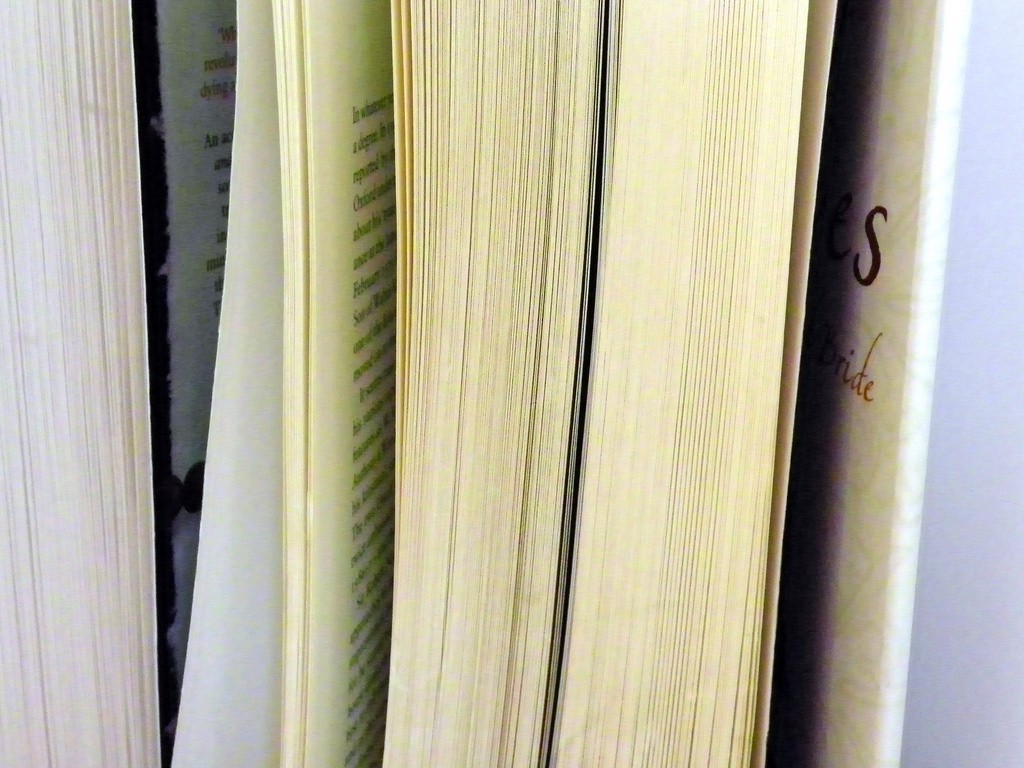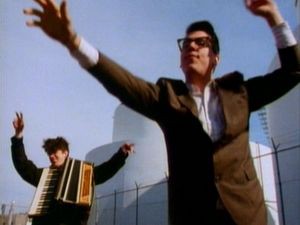Talking With Dear Businesslady About How Books Are Made
Self-publishing, traditional publishing, and who pays for what. (Spoiler alert: not who you think.)

Businesslady and I both have books in the publication process. Mine is The Biographies of Ordinary People, a self-published literary fiction novel; and hers Is This Working? The Businesslady’s Guide to Getting What You Want From Your Career, a traditionally-published nonfiction book that you can preorder RIGHT NOW. (It releases on April 1.)
The following is a recent chat we had about the business of publishing, and the similarities and differences between our experiences.
BUSINESSLADY: Let’s talk book stuff! Have you started doing more stuff with the music-licensing?
This Week in Self-Publishing: Licensing Lyrics, Part 2
NICOLE: Yes, in that I have started kicking all of the lyrics that were in the “maybe I’ll license this” pile into the “nope, I’m going to rewrite this so I don’t have to license anything” pile, simply because I am nervous about asking musicians I admire (and their publishing companies) if I can print their stuff in my book.
Also maybe the money. A little bit.
BUSINESSLADY: I was kind of shocked by how expensive it was to just use one tiny snippet as an epigraph. I mean, on the one hand I’m all for ensuring that musicians get paid. But on the other hand, it’s not as though anyone’s going to be like, “well I was going to buy this single — but then I read three lines of the song in a book so never mind.” If anything, it’s free advertising!
NICOLE: Exposure! LOL.
BUSINESSLADY: I did learn that most of the licensing fees are based on the number of copies, though, so you can probably save some money by starting off with whatever your initial print run is gonna be. You’ll potentially have to pay more down the line, but by then you’ll have gotten your own royalties.
NICOLE: Right, which is what I did when I licensed cover songs.
But there’s also the part where you have to give the rights holder a copy of the book, or at least the section in which you quote the lyrics, and I was all “I can’t tell Sting that he mumbles.”
Which was something I wrote.
In the book.
So I’m fixing that part.

BUSINESSLADY: Haha, I didn’t even think about that. Must be awkward if you want to write about how a character HATES a particular song or band.
NICOLE: I feel like we can get away with a lot of “not mentioning the actual lyrics” because we’re one technological shift away from being able to click something on Kindle and getting Google search results.
Or can we do that already?
But I’m definitely hoping that readers will look up any references they don’t get, because that’s the era in which we live.
BUSINESSLADY: Yeah, I’ve actually been meaning to ask my publisher how much hyperlinking we can do in the e-version of my book, because it would be nice to let readers click right over to The Billfold (for example) after I mention it.
NICOLE: I, for one, support that!
But I wanted to ask you about your epigraph, then. Did your publisher tell you how much it would cost? Did they suggest a less expensive version? How did that even work?
BUSINESSLADY: I had to handle all that myself, actually. The publisher wanted to ensure everything was on the up-and-up legally speaking, but I’m the one who paid the licensing fee, out of pocket.
NICOLE: Oooooh that is VERY interesting.
BUSINESSLADY: I don’t know how typical that is, but I imagine in my case the publisher was like, “we’re pretty confident the deciding factor for prospective readers isn’t whether or not this book begins with a They Might Be Giants quotation.”
NICOLE: Now I am scanning every TMBG lyric I know, trying to guess. I will be excitedly surprised!
BUSINESSLADY: Haha, I can tell you if you want — but maybe it’s better as a surprise.
NICOLE: Well, I’m betting it’s not “They’ll Need a Crane.” It could be something from “Put Your Hand Inside the Puppet Head,” but yeah, it’s better if I don’t guess ten songs right now.
BUSINESSLADY: Haha, now I’m cracking up at all the totally inappropriate TMBG lyrics I could’ve used. “Memo to myself: do the dumb things I gotta do” might work, but that’s not it.

NICOLE: How many costs did you end up paying out of pocket?
BUSINESSLADY: Out of pocket, just that, plus I paid a photographer/acquaintance to take some photos for the jacket image.
That wasn’t strictly necessary, but I didn’t really have any sufficiently professional photos of myself that weren’t five years old.
NICOLE: Also interesting! I bet people think that the publisher sends over their house photog or something.
BUSINESSLADY: Yeah, they were just like “send us a photo!” And I was like “crap, I gotta get a haircut!” My apartment is right by a park, and we ended up taking the shots literally a day after said haircut, on the last nice day of the year (late November). It snowed within 24 hours.
For your book(s), you’ve basically just been writing on your own schedule, right? And it’s like 180K words across both volumes? How long did that take?
NICOLE: 18 months. I started on July 31, 2015 and finished on December 30, 2016.
It was my goal to finish before the end of 2016 and I just made it. I also promised my patrons a certain amount of work by specific times, so I had interim deadlines to hit too.
BUSINESSLADY: Haha, I was just counting on my fingers and realized that I was writing at about 10K words/month too. Apparently that’s a reasonable book-writing pace for people who have other work on their plates.
I had deadlines from the publisher that I had to hit (25 percent, 50 percent, and then 100 percent of the full manuscript). I suspect there was wiggle room there I could’ve exploited, but I didn’t want to test that unless it was ABSOLUTELY necessary, and in the end I made every one. I think that sense of accountability helped me keep moving forward.
NICOLE: It certainly did for me. Also, I’m impressed that we were hitting similar word counts. I wonder if this is just us, or if it fits into a larger piece of data.
BUSINESSLADY: I definitely had a Google Doc where I calculated how long it’d taken me to hit certain word-count milestones (as in, actual time spent typing), but that was more to assuage my fears that I wouldn’t finish on time. It’s hard to say exactly how to estimate things like that, because so much of “writing” happens in the downtime: the random idea you type into your phone during dinner or race to scribble somewhere after a shower.
NICOLE: For sure. But there is also the physical time it takes to type words onto a page, and you’ve got WPM as a hard upper limit.
BUSINESSLADY: Yeah, that was useful as a motivator. If you owe (let’s say) 35K words by X date, it doesn’t matter how well-thought-out everything is in your head; you’ve got to allow time for to produce them via your fingers on a keyboard.
NICOLE: I guess you could figure out your hourly rate, then, if you really wanted to. Or I could, in terms of Patreon support divided by “hours at laptop.”
Actually, I just ran those numbers and they weren’t that bad; I got a little under $20 an hour pretax, not counting the “thinking in the shower” time.
BUSINESSLADY: Yeah, I guess it’s also different when you’re doing the Patreon model, where there’s a built-in audience and some payment upfront.
With my publishing deal, I got an advance — and I was very careful to be realistic about the fact that I may not make much more than that (although obviously I would love to!). But if I calculate the payment/effort ratio, it’s like the worst-paying freelance gig ever. (Of course, on the other hand, I get to be a published author at the end of it, which certainly has its own value.)
NICOLE: My Patreon is officially over, so I’m not continuing to collect support now that I’ve finished the draft, which was the whole point of the project to begin with: to buy time to write this book, because otherwise I would take that time and give it to another freelance client. (It was also a way to see if people were interested in the story and if they would continue being interested over the long haul, which would indicate that the book was probably not terrible.)
And yes, if we were going to play Spot the Differences in terms of money, you have a publisher to support and promote you, which might mean better sales, but you’ve also got to earn out the advance. And from my end, I am promoting myself (and paying for it) but everything I earn is mine to keep.
Which is…. if it’s about the money (and it isn’t just about the money), it’s going to be interesting to see how these two models play out.
BUSINESSLADY: Indeed! I also imagine you have more creative control, which I could see being especially important with fiction.
For me, it was super helpful to have professional book-purveyors guiding me through things and giving feedback — even if that meant sometimes letting go of weird cutesy asides or inside jokes with myself.
NICOLE: Hahahaha from a Billfold perspective I totally understand the “inside joke that maybe two people will get” thing.
One of the ways my Billfold writing has changed over the past few years is that I now do significantly fewer of those.
BUSINESSLADY: Online writing also allows you to explain references in real time — even if something’s obscure, you can solve that with a hyperlink. In a book… not so much. And then obviously it’s also less immediate, which was a bit of an adjustment.
NICOLE: So that’s another question! How long did the process take for you, from book proposal to agent to selling the book to a publishing house, all the way up to the release date on April 1?
BUSINESSLADY: It was actually almost embarrassingly easy in certain ways — my acquisitions editor reached out to me! I did eventually have to do a formal pitch, but it was after we’d already been talking, and it was informed by what I already knew they were looking for.
She got in touch in early December 2015, and we finalized the contract in mid-March 2016. I had to get 25 percent of the MS done by April 1, though, so that meant I was working on the book before it was completely formalized.
NICOLE: So it was a really short turnaround from the first draft to the final draft to publication.
BUSINESSLADY: Yes! Hence my periodic freakouts that I’d never get it done. But in the end, I ended up going like 6K words over what they wanted/needed, which led to an irony-laden editorial project of trimming it back down. (It’s so much better now, though. Tightening is always beneficial.)
NICOLE: How much do you know about what happens next? Are you scheduling readings? Book tours? Thinking about a second book?
BUSINESSLADY: I’m juuust getting started on promotion stuff, so I don’t have any official events planned yet. I’d love to do readings, though.
And I think I could see myself writing another book someday, which is part of why I’m so happy that this one happened: I actually know what I’d be getting into. I’m not sure what the next one would be, though.
What about you? Do you have other novel ideas in the works, with the same characters or different ones? And what are you doing in terms of a book tour?
NICOLE: Well, I’ve got Volume 2, which should come out before Summer 2018 (it would be great if I got it out by Holiday Season 2017, but that is wayyyyyy optimistic).
One of the secret reasons I’m interested in self-publishing is so I can write additional short fiction or “Kindle Singles” in this world if I want to.
Let’s say the books become way popular and everyone’s like “but what happened when Meredith went to college,” because I time-jump over that in the book, well… I could write it.
BUSINESSLADY: Ooh, that makes sense. But I imagine there’s something slightly nerve-wracking about finalizing the first volume, since that means you can’t make adjustments anymore? Of course, on the other hand, it’s probably best to have a mechanism in place to prevent infinite tinkering…
NICOLE: Amazon makes it very easy to make adjustments to your writing if you need to, and that’s actually becoming a more common thing in fiction. I’ll link a few examples, but some writers have used phrases that they didn’t realize were appropriative or problematic, and they’re able to very quickly release a new edition.
- When You Don’t Get it Right (or That Time I Appropriated Spirit Animal)
- On Making Mistakes
- Ashley Hope Perez’s OUT OF DARKNESS
And so far I am planning a three-city self-funded book tour: Seattle, Portland, Los Angeles. These are cities in which I know people and I know I can draw a crowd, and it also won’t cost me that much to do the whole thing. After that, we’ll see how popular I get, LOL.
BUSINESSLADY: Yeah, I live/work remotely in central NY but travel back to Chicago frequently for work meetings. So I’ll probably do events locally and in Chicago (but I’ll need to be careful that I do the book stuff on my own time when I’m traveling on my employer’s dime).
The revision thing is interesting! I’ve been assuming everything’s set in stone about this book, but who knows — I’ve tried to make it as timeless as possible but who knows how relevant it’ll be by the time we’ve all got telepathic implants and hovercars.
NICOLE: All of my favorite business and advice books have revised and updated editions. David Allen did not predict social media, and the ways it would complicate Getting Things Done!
BUSINESSLADY: That’s a fun project to imagine for the future. And one that novelists don’t need to worry about.
NICOLE: I think for both of us, the future will kind of depend on how these forthcoming books are received. Unpopular books don’t get updated or sequeled or turned into movies or whatever.
And although the odds are that we’ll both do well, there’s also the possibility that we’ll do unexpectedly, ridiculously well.
Which is very strange to think about — how we really don’t know what will happen.
BUSINESSLADY: I know, I’ve thought of that too. It would obviously be great, but it’s hard to wrap my head around. And of course, there are downsides to exposure, even if I think they’re most likely outweighed by the benefits
I like the idea of an extended look at a family, though. I loved A Tree Grows in Brooklyn, and a more extended, more modern take on that type of story is really appealing. And now that I’m done writing I actually have time for pleasure reading again, so I’ll have to pick up the first volume this summer!
NICOLE: And I’ve pre-ordered Is This Working, so I’ll get to read it in just a few months!
Support The Billfold
The Billfold continues to exist thanks to support from our readers. Help us continue to do our work by making a monthly pledge on Patreon or a one-time-only contribution through PayPal.
Comments